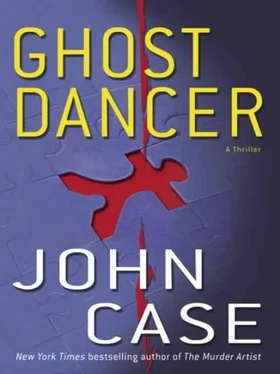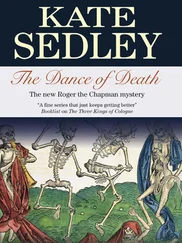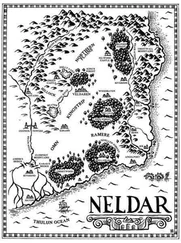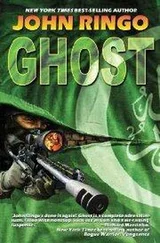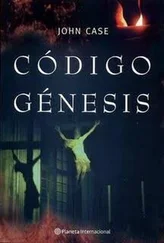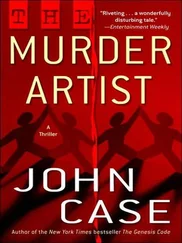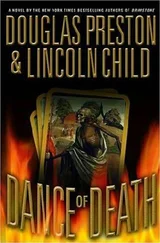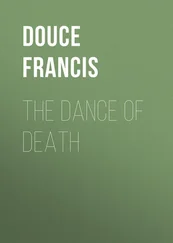The BfV got to work immediately. Within twenty-four hours, they were able to establish that Herr Simoni had entered Germany on a Bosnian passport. He’d come to Berlin from Beirut about six months earlier, and rented a two-room apartment at Oranienstrasse 54. Soon afterward, he opened a passbook account at a local branch of the Dresdner Bank, where his monthly balance averaged 936 euros. Though he did not appear to have a job, neither was he receiving public assistance. None of the informants at the Mevlana mosque were familiar with a person of that name. Inquiries were continuing.
The flat turned out to be a walk-up on the third floor. Jurgen was puffing when they got to the door, so it took him a second to catch his breath. When he was ready, he opened the briefcase he was carrying and took out a handful of religious tracts. He gave a couple to Clara, then broke into as bright a smile as his tobacco-stained teeth would allow, and rapped smartly on the door. As far as they knew, Simoni was living alone, but you could never be certain. Maybe he got lucky the night before. Maybe he had a dog. Maybe… nothing.
The flat was quiet as a stone. Jurgen gestured for Clara to step aside, and when she did, he got out his kit and picked expertly at the lock. A few seconds later, and they were in.
“I’m right back!” Bobojon declared. “I get package, we go post office!” The driver shrugged. Bobojon climbed out of the cab and bounded up the steps to Oranienstrasse 54.
Inside, the smell of cabbage hung in the stairwell, buoyed by an updraft of Arab music flowing from the janitor’s apartment in the basement. Bobojon didn’t mind the smell. If anything, it reminded him of home.
He took the first three flights of stairs two steps at a time, then paused to catch his breath. He was in okay shape. Not like when he’d just gotten out of prison, but not bad, either. He walked everywhere in Berlin, even in the winter, and worked out at a kickboxing studio four nights a week. So it only took him a moment to get to his door.
He fumbled for the key in the pocket of his coat, came up with it, and turned it in the lock. To his surprise, the door didn’t open. So he turned the key again, the other way, and then it did. For a moment, he stood where he was with a frown on his face, thinking he must be losing it. How could he go out without locking the door? And then the answer came to him: He couldn’t. He wouldn’t. So he pulled out the little gun that he carried, a Makarov, and stepped inside.
A young woman – maybe twenty-six, nice-looking, short brown hair, net stockings – was standing frozen at the kitchen table with a look of horror on her face. The telephone was on the table in front of her, disassembled, the speaker and earpiece next to the handset. Beside the phone was his package. He didn’t stop to think about it. His gun came up and, almost as a reflex, he shot her in the face, tearing a hole in her cheek, then fired again as she fell, blowing a chunk out of her neck. She did a sort of pirouette before she fell. Suddenly, blood was everywhere – on the walls and the floor, on the side of the sink. Clawing at the linoleum, dying to get away, she was at the epicenter of it all. And Bo felt sorry for her, he really did. But he shot her again, this time in the back. Finally, she lay still. By then, his heart was a jackhammer, so loud in his ears that he almost didn’t hear the gasp that came from his left. Turning toward the noise, he saw what looked like Christian religious tracts falling to the feet of a man with a Glock. There was no time to react. Bobojon could almost feel the man pull the trigger. It didn’t even take a second, but the moment lasted forever and, in it, Bobojon realized where he’d seen the tracts before – in Allenwood. Then the Witness pulled the trigger a second time. Bobojon felt the side of his face explode as the bullet spun him around and sent him staggering. For a moment, he was bright with pain. Then his legs gave way and he sank toward the floor. The Witness kept firing, tearing new holes in him, but by then, Bobojon could feel his body shutting down. The gunshots sounded farther and farther away as a red mist fell like a curtain behind his eyes. Oh shit, he thought, I’m dying…
ODESSA, UKRAINE | MARCH 3, 2005
Wilson sat by himself in the hotel’s lobby, drinking tea while he waited for Belov. It was midafternoon, and the lobby was suffused with a wintry light. Zero and Khalid were playing backgammon at a table near the door, occasionally looking up in annoyance at a tour group of Orthodox Jews, who were arguing with the desk clerk in a language Wilson didn’t understand. Nearby, a couple of businessmen sat on the edge of a white leather couch, reading newspapers.
It was three o’clock when Maxim Pavelovich Belov arrived, brushing the snow from his shoulders. Seeing him, it occurred to Wilson that he looked like a million bucks – or about two percent of his net worth. (Wilson had Googled him the night before.)
A former KGB major, Belov wore a Savile Row suit under a black vicuna overcoat, and a sable hat of Soviet army design. Snowflakes sparkled in the fur. According to a report by a UN investigating team, he was forty-three years old and held an economics degree from the Institute of Social Relations in Moscow. He was also one of the largest small-arms dealers in the world, having gotten his start flying South African gladiolas to Dubai, where the flowers sold for ten times what he paid for them.
Striding directly over to Wilson, Belov pulled off his gloves, clicked his heels with a look of bemusement, and held out his hand. “Welcome to Evil Empire!” he said, his voice filled with gravel. “Or what’s left of it. Did you enjoy yourself last night?”
Wilson got to his feet and shook the Russian’s hand. A low-pitched buzzing sound emanated from an improbably pink pair of earphones dangling from Belov’s neck. White Stripes. “I was surprised when you didn’t meet the ship,” Wilson told him.
Belov laughed. “I never ‘meet ship.’ Maybe you smuggle drugs. Viagra, even!” He laughed again. “That’s all we need. You ready?”
Wilson nodded. With a heads-up to Zero and Khalid, he followed Belov out to the street, where a pair of Cadillac Escalades idled in the snow, their windows gray with steam. A small flag flew from a plastic standard on the passenger-side fender of each car. The flags consisted of a black field, emblazoned with a silver sheriff’s badge – the kind with a six-pointed star.
It was odd, Wilson thought, but so was the way the Russian came and went without bodyguards. Then he saw that this wasn’t actually true. As he got into the back of the second Escalade, he saw the “businessmen” from the lobby, the ones who’d been sitting on the white couch, climb into the car ahead of him. Apparently, they’d been watching him for more than an hour before Belov himself appeared at the hotel.
One by one, each of the car doors slammed shut against the sleet. Belov slapped the top of the seat in front of them – two quick raps with the palm of his hand – and the cars pulled away from the curb.
“First time in Odessa?”
Wilson nodded. The car was soundproofed or armored, or both. He couldn’t tell. Either way, it had the feeling of a cocoon.
“You see Steps?”
“Yeah.”
Belov sat back in his seat. “First time I see steps, I cried. Not like baby. But… I’m wet in face. Maybe you feel same way when you see Statue of Liberty. No?”
“No.”
Belov laughed.
The SUVs gathered speed as the city petered out into farmland, the earth fallow under a blanket of snow and litter. They were heading away from the sea, moving inland over a road that needed repairs. “So how do we do this?” Wilson asked.
Читать дальше
